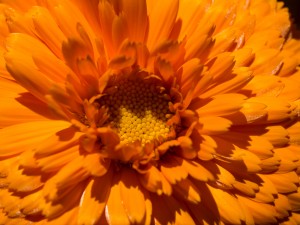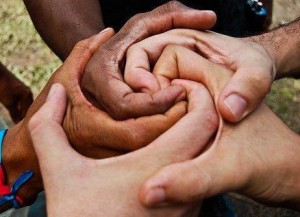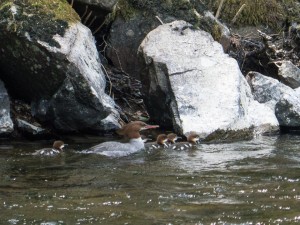 We had the Sunday Introduction to Meditation Class at Yoga Bliss yesterday: two segments of formal sitting meditation and a period of mindful walking. After walking we practiced a beautiful loving kindness meditation inspired by the teachings of Dr. Sylvia Boorstein, author and founding teacher of Spirit Rock Meditation Center. Sylvia seems to be a born nurturer. She introduces herself as a wife, mother, grandmother and then goes on to name her other occupations. She encourages students to practice meditation in a way that nurtures those qualities that most enhance our well being and the well being of those around us.
We had the Sunday Introduction to Meditation Class at Yoga Bliss yesterday: two segments of formal sitting meditation and a period of mindful walking. After walking we practiced a beautiful loving kindness meditation inspired by the teachings of Dr. Sylvia Boorstein, author and founding teacher of Spirit Rock Meditation Center. Sylvia seems to be a born nurturer. She introduces herself as a wife, mother, grandmother and then goes on to name her other occupations. She encourages students to practice meditation in a way that nurtures those qualities that most enhance our well being and the well being of those around us.
Monthly Archives: June 2014
Compassionate Mindfulness
 We had the Sunday Introduction to Meditation Class at Yoga Bliss yesterday: two segments of formal sitting meditation and a period of mindful walking. We brought awareness to the six points of posture as we “settled the body into its natural state.” We followed the techniques taught by Alan B. Wallace of shifting awareness to the mental events that arise in the “space of the mind” and, eventually, focused on awareness itself.
We had the Sunday Introduction to Meditation Class at Yoga Bliss yesterday: two segments of formal sitting meditation and a period of mindful walking. We brought awareness to the six points of posture as we “settled the body into its natural state.” We followed the techniques taught by Alan B. Wallace of shifting awareness to the mental events that arise in the “space of the mind” and, eventually, focused on awareness itself.
We discussed what motivates us to meditate and the challenges we encounter in practice. Many of us shared the desire for more calm and equanimity and about the physical challenges of sustaining a seated posture for prolonged periods of time. One of our master yoga teachers, Jonathan Bowra, describes advanced yoga practice as the ability to stay out of struggle. We often push ourselves to conform to an ideal form of a pose – like lotus for example. Many of us are not anatomically adapted to rotating our hips in this way and injure our knees in the process of trying. Why? The manner in which we approach our practice often reflects the way we move through our lives more generally. Do we extend ourselves acceptance, patience, time and tolerance? Do we allow ourselves a process of growth that’s authentic and truly nourishing? This is not to say we avoid challenging sensations. We can recruit our minds and our breathing to build resilience in building strength and flexibility. We come together in class to encourage and support one another to learn and grow.
Organic Mindfulness
 We had the Sunday Introduction to Meditation Class at Yoga Bliss yesterday. We had had two segments of formal sitting meditation and a period of mindful walking. We explored shifting our awareness from the most accessible tactile sensations such as following the breath to the more subtle space of the mind from which all thoughts arise and subside.
We had the Sunday Introduction to Meditation Class at Yoga Bliss yesterday. We had had two segments of formal sitting meditation and a period of mindful walking. We explored shifting our awareness from the most accessible tactile sensations such as following the breath to the more subtle space of the mind from which all thoughts arise and subside.
We had a fascinating discussion about how meditation can shift our perspective. We agreed that it becomes most powerful when you can integrate it “organically” into daily life. This begins with intention but also a great willingness to resist the pull of habit, to interrupt our patterns of doing, doing, doing so that we can stop even just for a few moments of mindful breathing. It also involves being creative and flexible about what really works for you. That’s what I mean by “organic mindfulness.” Our intention and consistency fuels the power of the practice – it begins to work on us beyond the more “formal” periods of meditation.
Inter-being & Survival
 We had the Sunday Introduction to Meditation Class at Yoga Bliss today. We drew on B. Alan Wallace’s Minding Closely: The Four Applications of Mindfulness. We had had two segments of practice: a period of lying down in which we rested awareness on the 1st close application: the tactile field of the body; and then a second period of sitting in which we rested awareness on the phenomenal field.
We had the Sunday Introduction to Meditation Class at Yoga Bliss today. We drew on B. Alan Wallace’s Minding Closely: The Four Applications of Mindfulness. We had had two segments of practice: a period of lying down in which we rested awareness on the 1st close application: the tactile field of the body; and then a second period of sitting in which we rested awareness on the phenomenal field.
Alan explains that the is 4th close application of mindfulness concerns all phenomena: ” . . . internal dialogue, mental imagery . . . emotions . . . somatic resonances in the heart . . . all arising as entangled experience. Mindfulness of phenomena is all inclusive.” We move our focus from the most easily perceived experience of physical sensation to the more difficult apprehension of the subtle realm of the “space from which thoughts arise. . . . the “substrate consciousness.” He writes: “As we direct awareness to the space of the mind and its contents – something new becomes real for us: the space of the mind that constitutes the ground of all experience.”
Awake
 “Let me respectfully remind you, Life and death are of supreme importance, Time passes swiftly by and opportunity is lost. Let us Awaken! Awaken! Take heed: Do not squander your life.” Evening Gatha, Upaya Zen Center Jukai Book
“Let me respectfully remind you, Life and death are of supreme importance, Time passes swiftly by and opportunity is lost. Let us Awaken! Awaken! Take heed: Do not squander your life.” Evening Gatha, Upaya Zen Center Jukai Book
Freedom is not a reward at the end of a long tunnel to nirvana or enlightenment we can develop it now. . . . freedom is . . . a dynamic process to be cultivated. Experientially, it’s obvious when the mind is in the grip of a powerful emotion . . . A mind overwhelmed by anger or craving sees reality through a very narrow slit. With a limited perspective, poor decisions are made. At such times we’re not free. This practice is to maintain mental spaciousness . . . while gradually cultivating a sense of freedom. By recognizing mental afflictions as they arise, we can cultivate antidotes such as loving kindness and compassion. When we are able to act most beneficially for ourselves and others, then we are truly free.I appreciate these words of encouragement. Like so many people, my family is going through some challenging and painful experiences. We find ourselves getting easily trapped in worry and useless thoughts over circumstances beyond our control. It’s almost as if our minds are under a spell. My partner and I were blessed with charming moments of freedom this weekend. We sat by the river and spied the little fish in the picture above – a trout fry – glimmering in the water. We were swept up by the river of nature surrounding us – enchanted and present. Like the river, time passes swiftly by. I don’t want to waste this opportunity. Coming together in practice with you helps me stay awake. Many thanks and wishing you nature’s blessings. Sunday Introduction to Meditation Class 46 Homework
